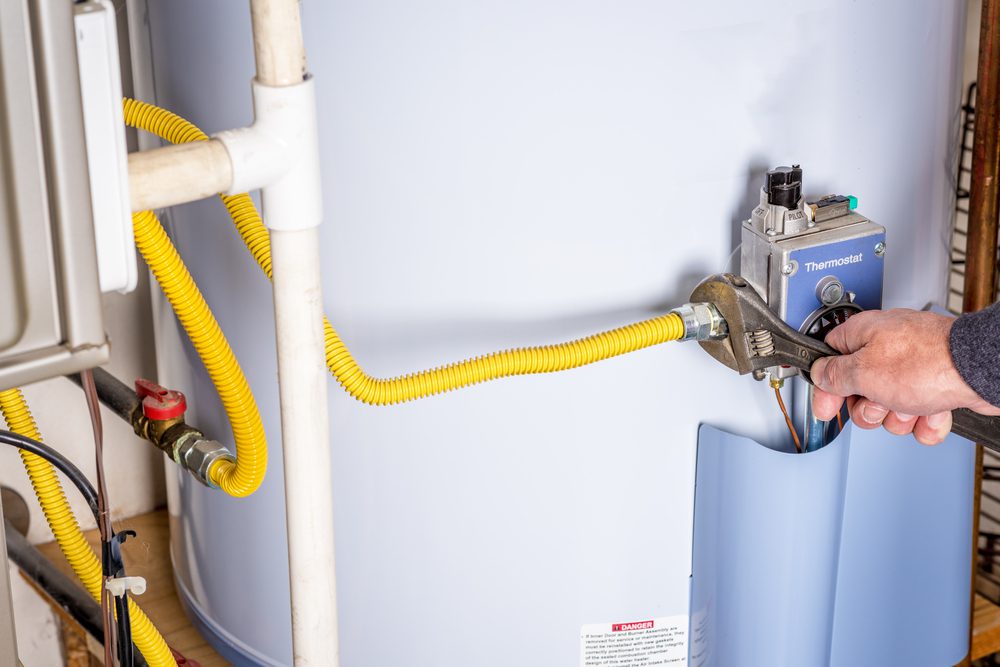Action Plan For Regular Water Heater Problems
Action Plan For Regular Water Heater Problems
Blog Article
Each person may have their own unique rationale with regards to Water Heaters Problems.

Visualize starting your day without your routine hot shower. That currently establishes a bad tone for the remainder of your day.
Every residence requires a reliable water heater, yet just a couple of recognize how to handle one. One very easy way to keep your hot water heater in leading shape is to look for faults on a regular basis as well as repair them as soon as they show up.
Keep in mind to turn off your hot water heater before smelling around for mistakes. These are the water heater mistakes you are most likely to run into.
Water too warm or too chilly
Every hot water heater has a thermostat that identifies how hot the water gets. If the water entering into your residence is as well warm in spite of setting a practical maximum temperature level, your thermostat might be malfunctioning.
On the other hand, also cold water may result from a stopped working thermostat, a busted circuit, or incorrect gas circulation. For example, if you utilize a gas hot water heater with a broken pilot burner, you would obtain cold water, even if the thermostat remains in perfect problem. For electrical heaters, a blown fuse may be the wrongdoer.
Not enough hot water
Water heaters been available in numerous dimensions, relying on your warm water needs. If you run out of warm water prior to every person has actually had a bathroom, your water heater is also tiny for your family size. You should take into consideration setting up a larger water heater storage tank or going with a tankless water heater, which uses up much less area as well as is much more durable.
Weird noises
There go to the very least five type of sounds you can hear from a water heater, yet one of the most common interpretation is that it's time for the hot water heater to retire.
First of all, you ought to recognize with the typical seems a hot water heater makes. An electrical heating system might appear different from a gas-powered one.
Popping or banging sounds usually mean there is a slab of debris in your containers, and also it's time to cleanse it out. On the other hand, whistling or hissing noises may simply be your valves allowing some stress off.
Water leaks
Leaks can originate from pipes, water connections, shutoffs, or in the worst-case scenario, the storage tank itself. Over time, water will corrode the tank, as well as discover its escape. If this takes place, you need to replace your water heater immediately.
Nevertheless, prior to your adjustment your entire container, make certain that all pipelines remain in area which each shutoff functions flawlessly. If you still require aid recognizing a leakage, call your plumber.
Rust-colored water
Rust-colored water means among your water heater components is corroded. It could be the anode rod, or the container itself. Your plumber will be able to determine which it is.
Warm water
Regardless of exactly how high you set the thermostat, you won't obtain any hot water out of a heating unit well past its prime. A hot water heater's efficiency might decrease with time.
You will certainly additionally get warm water if your pipelines have a cross link. This suggests that when you activate a faucet, warm water from the heating unit streams in together with regular, cold water. A cross link is very easy to area. If your hot water taps still follow shutting the water heater shutoffs, you have a cross connection.
Discoloured Water
Corrosion is a significant reason for dirty or discoloured water. Deterioration within the water tank or a falling short anode pole can trigger this discolouration. The anode pole secures the tank from rusting on the inside and also ought to be examined yearly. Without a rod or an effectively operating anode rod, the hot water rapidly rusts inside the container. Call a specialist hot water heater specialist to figure out if changing the anode rod will fix the problem; otherwise, change your hot water heater.
Final thought
Ideally, your water heater can last 10 years prior to you need a change. However, after the 10-year mark, you may experience any of these faults more routinely. Now, you ought to include a new water heater to your budget plan.
How To Troubleshoot 3 Common Water Heater Problems in Twin Cities
The Water Heater Is Leaking
A leaky cold water inlet valve A loose pipe fitting A leaky temperature and pressure relief valve A corroded anode rod A cracked tank Turn Off Your Water Heater:
Shut off your gas water heater by turning the gas valve on the unit to the “OFF” position. Shut off your electric water by switching its power off at your electrical panel. Look for a two-pole breaker labeled “water heater” and turn it to the “OFF” position. Move the ball valve connected to the water heater to be perpendicular to the piping at a 90° angle. Look for the Leak:
Depending on whether the water is coming from the tank's top or bottom, you’ll want to look for the leak in different locations.
If the leak comes from the top of the tank, carefully look for water escaping from the cold water inlet valve or loose pipe fittings. Rusted hot and cold water valves can have loose connections with the tank, with water leaking out of them.
https://mspplumbingheatingair.com/blog/how-to-troubleshoot-3-common-water-heater-problems
I have been very interested in Water Heaters Problems and I really hope you liked the entire entry. Sharing is caring. You never know, you might be doing someone a favor. I enjoy reading our article about Water Heaters Problems.
Recurring Service Plans Report this page